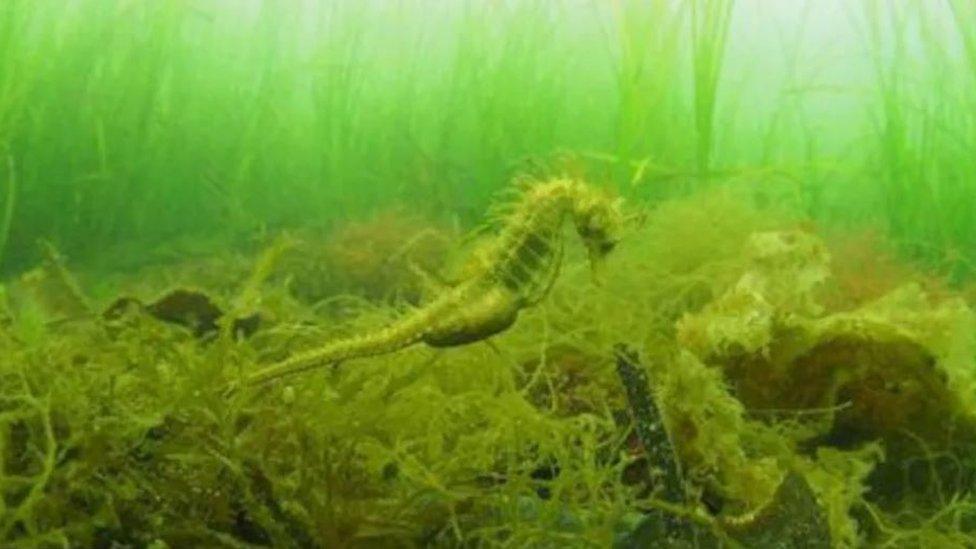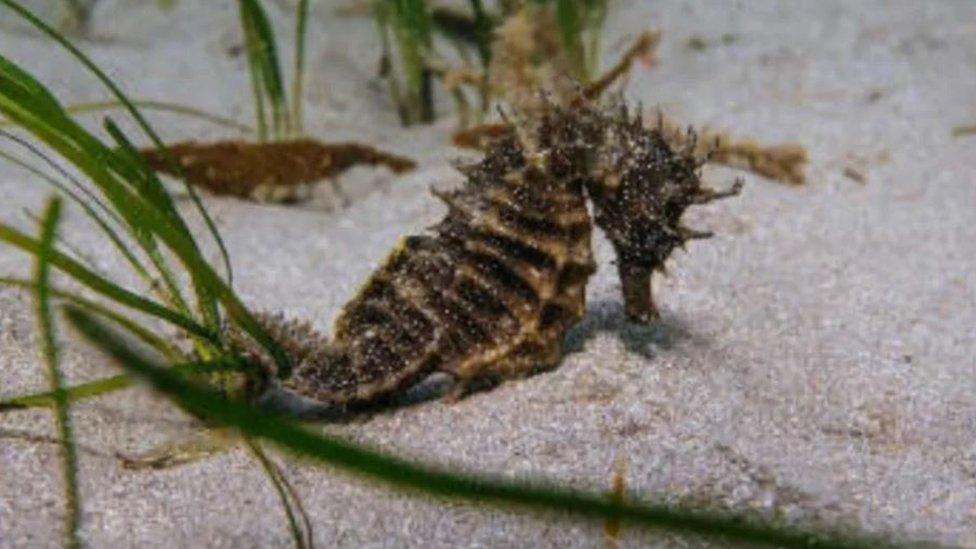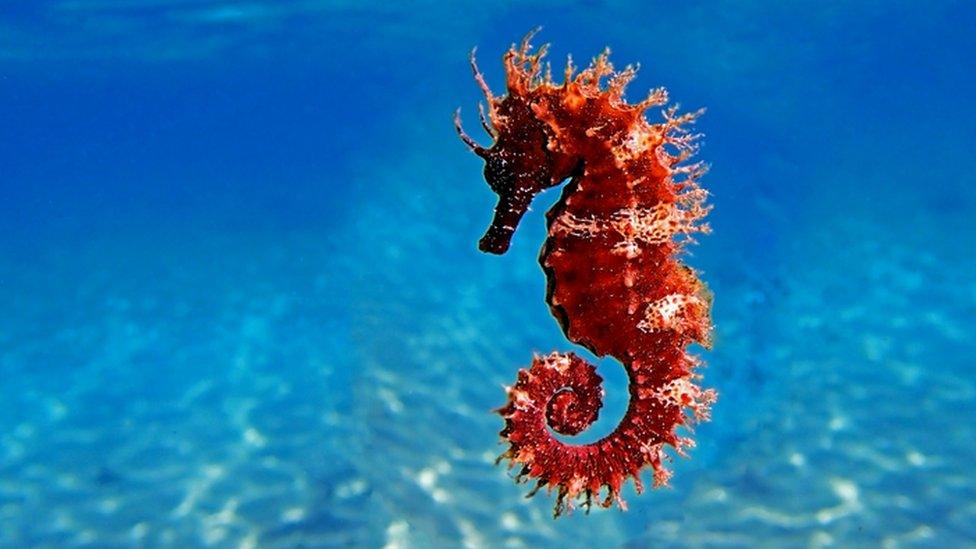Long-snouted seahorse: Rare marine fish spotted in Cornwall
- Published
- comments

A spiny seahorse, like the one pictured here, was recently spotted in Cornwall
A rare seahorse has been spotted in Cornwall, in south-west England.
Only seven sightings of the species have been reported in the county over the past ten years.
Experts have called the discovery of the long-snouted seahorse - also known as a spiny seahorse - "special".
Areas with populations of seahorses can be a good indicators of healthy waters and habitats for other marine animals.
What's happened?

This long-snouted seahorse was spotted off the coast of Plymouth in 2021
The long-snouted seahorse was spotted during a lunchtime walk by Cornwall council's nature recovery officer Alicia Shephard.
Ms Shephard said it was an incredibly rare species to come across in the county.
She explained: "I can't stress enough how special it is to see a seahorse thriving in Cornwall waters.
"This is an insanely rare species to find and isn't something most people will ever see in their lifetime."
Seahorses eat by using their snouts to suck up food like a vacuum cleaner!They also don't have stomachs - just a digestive tube, so they need to suck up lots of tiny meals throughout the day to get their nutrients.

Seahorses have curled, flexible tails which can grasp onto objects such as vegetation in the water
Cornwall council said that research shows seahorse populations have decreased rapidly, with reports of seahorses disappearing from some coastal areas.
Seahorses are an example of an 'indicator species' - this means that areas which have a healthy seahorse population, indicate a healthy habitat for other marine animals too.
They added that the discovery of the rare seahorse was "a sign of the improving health of Cornish rivers and estuaries and the ongoing need to protect and restore nature in the region".
